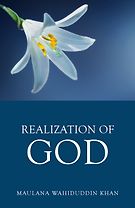MARCH 8
Seeking the Pleasure of GodAccording to the Quran and the Hadith, a good deed is one, which is essentially intended to seek the pleasure of God (57:27).
Devoid of this spirit, any deed will be
be as good as worthless when the final reckoning comes.
God does not go by appearances. He sees the inner motive called ‘intent’ in the Shariah. Looked at from this angle, deeds could be of two kinds, those
that are committed to seek the pleasure of God, and those aimed at pleasing human beings.
The focal point of the man whose aim is to seek the pleasure of God will be his Creator. He seeks to find out whether







